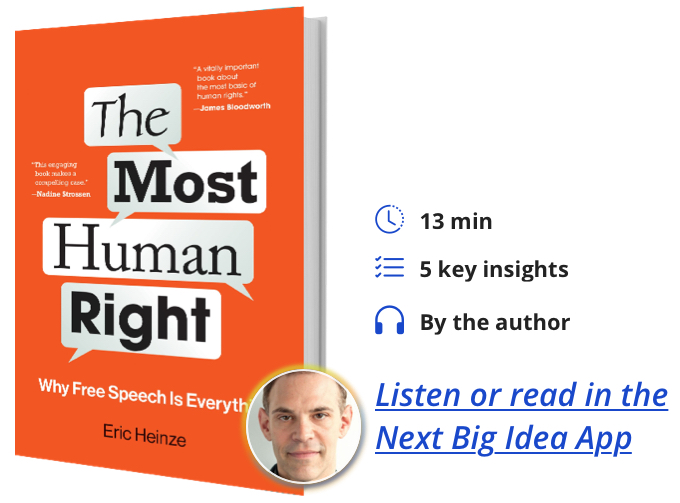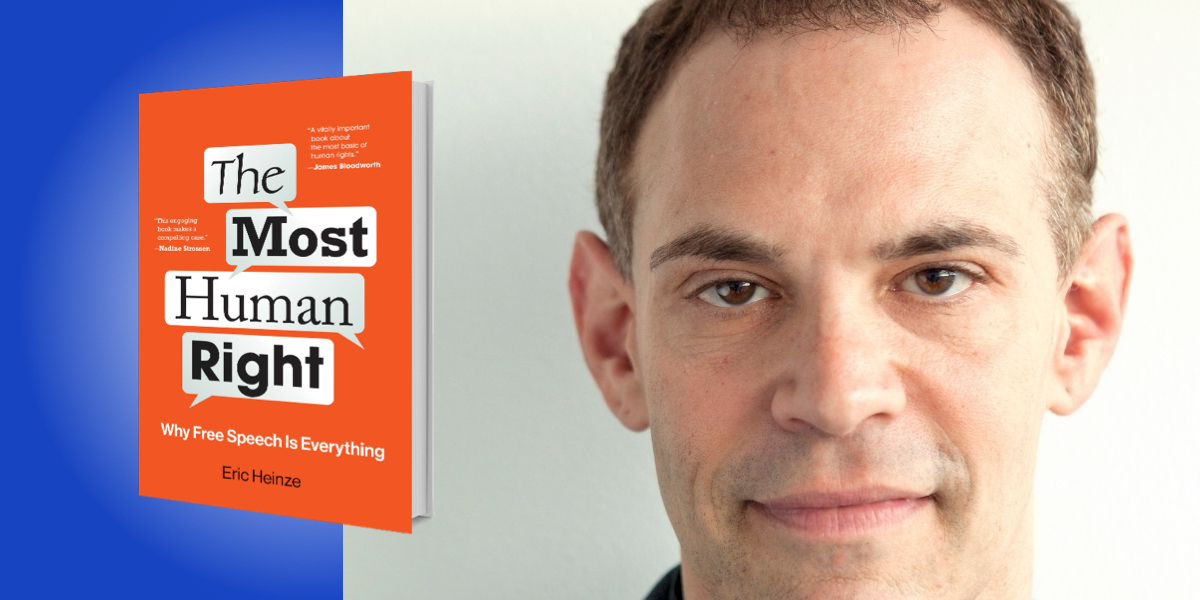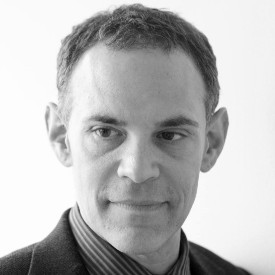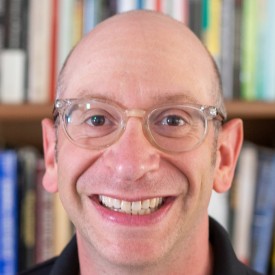Eric Heinze is a Professor of Law at Queen Mary University of London. He is internationally recognized as an expert on justice theory and human rights. He has worked with the International Commission of Jurists and the UN Sub-Commission on Human Rights in Geneva, as well as advised NGOs, such as Liberty and Amnesty International.
Below, Eric shares 5 key insights from his new book, The Most Human Right: Why Free Speech Is Everything. Listen to the audio version—read by Eric himself—in the Next Big Idea App.

1. Human rights must present some new way of thinking about justice.
What exactly are human rights? Well, shortly after World War II, diplomats gathered at the newly created United Nations to draft the Universal Declaration of Human Rights. These delegates believed that all human beings have a right to life, a right not to be tortured, a right not to be arbitrarily arrested or imprisoned, freedom of religious belief, a right to minimum levels of food and clean water, and many other things considered essential to a dignified life.
When the Universal Declaration was first adopted, some critics saw it as another way for Westerners to impose their own values around the world. Yet other observers disagreed, arguing that the values proclaimed in the Universal Declaration have long been taught in ancient traditions, such as Confucianism, Christianity, Buddhism, and Islam.
What purpose do human rights serve if they merely repeat values that many traditions have long taught? It is certainly very good if human rights can include norms that have been cherished throughout history, but that fact alone cannot explain their distinctive contribution to promoting a more just world.
Human rights need to offer some new conception of justice that has never been seen before. Human rights can only offer something new and different insofar as they guarantee everyone’s freedom to speak out.
2. We need to understand the difference between human rights and human goods.
Throughout history, many belief systems have promoted various goods, but rarely have they done this through anything like today’s human rights. Rights are only one very specific tool for protecting basic goods. So, the key difference between rights and goods is that goods can be protected by rights only through free speech.
“A good can be protected by a right only when we are able to claim it.”
To make sense of this point, let’s recall some of the rights set forth in the Universal Declaration: the right to life, the right not to be tortured, the right to obtain some basic level of food or clean water. If you live in poverty, or in a war situation (as many people do), you may well care more about those things than about free speech.
Life, safety, nourishment, and health are all very important. They are all very good things, so we can certainly call them human goods. But what does it mean to call them rights, or to say that we have rights to them? It means that a good can be protected by a right only when we are able to claim it. There are many ways of claiming rights: through public campaigns, street protests, courtroom challenges, the media. Those channels all require free speech.
Imagine a benevolent dictatorship that provides lots of food, clean water, housing, and other basic goods. Still, if a citizen lacks the freedom to openly challenge and dispute the delivery of these goods, then these goods are not being provided in the form of rights. A dictatorship may provide plenty of goods, but never in the form of rights, because the very meaning of a dictatorship is that it can cancel free speech—suddenly and without notice.
3. Free speech is not just another right.
Free speech provides the very possibility for goods to be protected as rights. Free speech is the supreme right insofar as it sets the condition for the very possibility of claiming our rights.
Many experts agree that we need free speech to claim rights, but they argue that we also need food in our bellies, a roof over our heads, and other such safeguards in order to claim our rights effectively. To them, this makes all rights equally important to securing other rights.
But this is true of all traditions. Confucianism, Christianity, Buddhism, Islam—none of their precepts can be followed effectively if we lack food, clean water, or a home. Yet, I am not asking how human rights resemble other justice systems, but what is distinctive about human rights.
“Without free speech, we are left with shopping lists of goods which have no distinctive meaning as rights.”
If China or Russia could show that they reduced their levels of torture and arbitrary detentions, or that their populations were living longer and healthier, then their people would be enjoying greater levels of human goods. But we don’t need a concept of human rights to make that observation. People in those countries will only ever have human rights when they can openly and fearlessly demand those goods. This is why a human rights system is so hard to achieve.
This is, again, the difference between human rights and human goods. Without free speech, we are left with shopping lists of goods which have no distinctive meaning as rights.
4. Until free speech is recognized as the foundation for all human rights, we will never be able to say that any global systems of human rights exist at all.
A small number of prosperous democracies have human rights regimes that generally function well, such as Norway, New Zealand, and some others. In these countries, citizens can safely use any number of networks to speak up for their rights.
But throughout too much of the world, such opportunities do not exist. Citizens are not able to complain, demand, and protest. Doing so creates dangers for themselves, their families, and friends. Their governments may give them various goods, but never in the form of rights.
“Free speech is a necessary condition for human rights, but not yet a sufficient condition.”
Most United Nations experts today would praise a country for ensuring adequate rights to food and clean water, even while condemning that country for cracking down on free speech—but that makes no sense. Without free speech, it is not rights to food, water, or anything else that a government is providing, and we need to be far more candid about this distinction.
5. Free speech is not always sufficient for ensuring human rights, but it is necessary.
Free speech enjoys greater legal protection in the United States than in any other country, and yet the United States has often seriously abused human rights, both at home and abroad. If free speech provides the essential foundation for human rights, shouldn’t the United States be the world’s best human rights performer?
This is why I say that free speech is a necessary condition for human rights, but not yet a sufficient condition. The point is not that wherever we find free speech we therefore find solid human rights protections. The point is precisely the converse: wherever we do have solid human rights protections, we always find extensive protection of free speech. This is why the best models are found in places like Iceland, Sweden, or the Netherlands.
Even those countries impose some restrictions on speech that I disagree with, but I’ll leave that discussion for another book. For now, the crucial point is that those countries enjoy historically unprecedented levels of free speech and historically unprecedented human rights protections. Or rather: they enjoy historically unprecedented levels of human rights protections because they enjoy historically unprecedented levels of free speech. And that is no coincidence.
To listen to the audio version read by author Eric Heinze, download the Next Big Idea App today:































